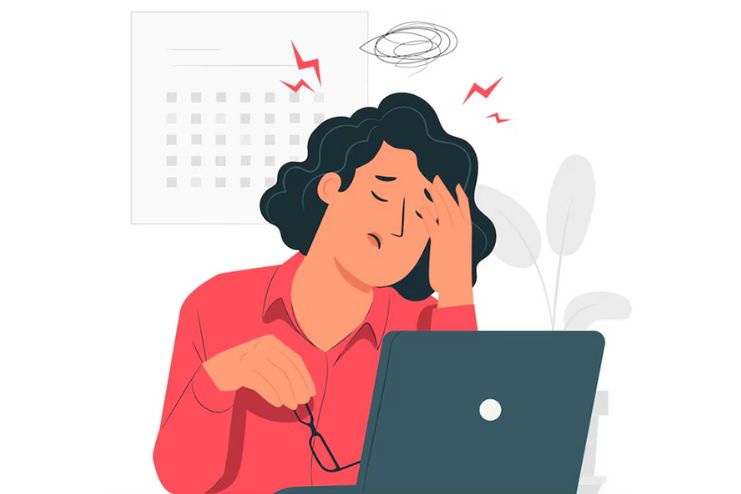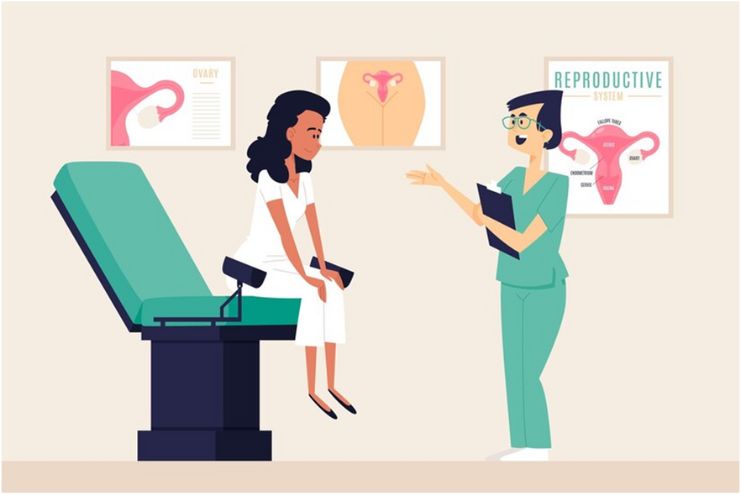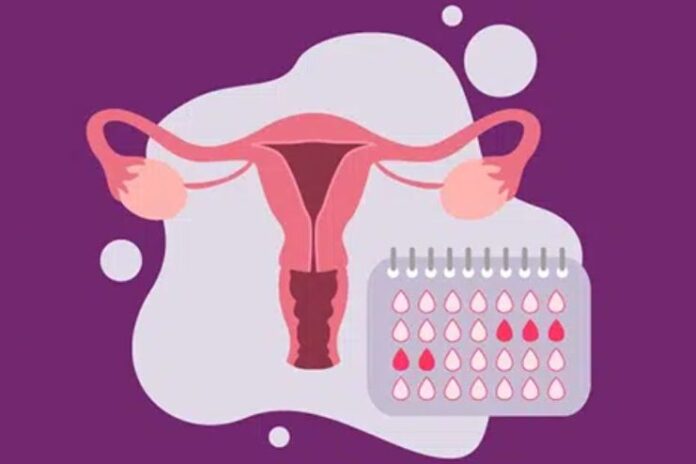Affiliate Disclaimer
Some links in this article are affiliate links. We may earn a small commission if you make a purchase through these links, at no extra cost to you. We only recommend products we find useful to our readersMissed periods, often referred to as amenorrhea, can be a natural occurrence or a signal of an underlying health issue. While some causes, like pregnancy or menopause, are expected, others might indicate hormonal imbalances, lifestyle factors, or medical conditions that require attention.
Understanding the causes of missed periods is essential to managing overall reproductive health. In this article, we’ll explore the causes and types of amenorrhea and when to consult a healthcare provider. Gaining insight into these factors can help ensure that your menstrual health remains on track.
What is Amenorrhea?

The medical term given to the absence of menstrual periods is amenorrhea. It occurs in two main types, primary and secondary, determined by when this condition occurs and what’s causing it.
- Primary Amenorrhea: This is when an individual assigned female at birth has not started menstruating by the age of 15, although other secondary signs of puberty are observed. It is commonly related to genetic conditions, hormonal imbalances, or developmental problems with the reproductive system.
- Secondary Amenorrhea: This is the absence of menstruation in someone who previously had regular periods. Common causes include pregnancy, significant weight fluctuations, stress, polycystic ovary syndrome (PCOS), or medical conditions such as thyroid dysfunction or prolactin-secreting tumors.
Amenorrhea can also result from natural processes like pregnancy, breastfeeding, or menopause. However, periods stopping unexpectedly or irregularly may point to an underlying health issue that warrants medical attention.
Common Causes of Missed Periods

There are many reasons for amenorrhea and missed periods. Usually, these can be related to hormonal or lifestyle problems or even certain diseases.
1. Hormonal Imbalances
- Polycystic Ovary Syndrome (PCOS): It is a common condition with hormonal imbalance where women get irregular or missing periods because of an ovulation disorder.
- Thyroid Disorders: Both hyperthyroidism and hypothyroidism can disrupt menstrual cycles as the levels of hormones fluctuate.
- Prolactin Imbalances: Hyperprolactinemia (often caused by pituitary gland dysfunction) suppresses menstruation.
2. Extreme Weight Changes
- Weight Loss: Involuntary drastic weight loss may cause one’s periods to stop because it acts to reserve energy, upsetting the hormonal system for reproductive functions.
- Weight Gain: Excessive weight gain might change hormone levels, thus missing out on menstruation.
3. Stress and Lifestyle Factors
- Stress: Chronic stress can disrupt the hypothalamus, which is part of the brain that governs menstrual hormones.
- Over-exercise: Intense exercising, especially among athletes, can cause exercise-induced amenorrhea.
4. Medical Conditions
- Chronic Illnesses: These include conditions such as diabetes or celiac disease and can have an effect on the frequency of menstruation.
- Medications: Some medications cause missed periods as a side effect; these include hormonal contraceptives and antipsychotics.
Identifying the causes of amenorrhea is essential for effective treatment. If missed periods continue, then it is time to consult a healthcare provider to diagnose and treat the root cause.
When to See a Doctor for Missed Periods

Knowing when to visit a doctor is essential in maintaining reproductive and general health. Although missed periods sometimes result from temporary stress or lifestyle changes, persistent or recurring absences may indicate a deeper health problem.
Signs You Should Consult a Doctor
- Missed Periods for Three or More Cycles: If you haven’t had your period for three or more months (and are not pregnant), you should consult a doctor to rule out conditions such as polycystic ovary syndrome (PCOS), thyroid disorders, or other hormonal imbalances.
- Extreme Menstrual Irregularity: If your cycle’s length, intensity, or frequency suddenly changes, you should consult a doctor to determine the possible causes, such as uterine fibroids or endometriosis.
- Accompanied Symptoms: Excessive hair growth, weight changes, severe cramps, or unusual discharge with missed periods may indicate a more serious problem.
- Adolescents and Delayed Menarche: Any teenager who has not started menstruating by the age of 15 years or three years after developing secondary sexual characteristics should seek medical attention.
- Menopause Symptoms Before Age 40: Missing periods accompanied by symptoms like hot flashes, mood swings, or vaginal dryness before age 40 may indicate premature ovarian insufficiency (early menopause).
Importance of Seeking Medical Advice
Regular menstruation is a marker of overall health. Prolonged absence of periods can lead to complications such as infertility, osteoporosis, or cardiovascular issues if left untreated. Consulting a doctor ensures timely diagnosis and appropriate treatment for underlying conditions.
If you’re uncertain when to see a doctor, it’s better to err on the side of caution and schedule a visit for evaluation and peace of mind.
Amenorrhea Treatment and Management

Addressing the underlying causes is key to effective treatment and fixing missed periods. The management plan depends on the specific reason behind the absence of menstruation, whether it’s hormonal imbalances, lifestyle factors, or medical conditions.
Lifestyle Changes
- Healthy Diet and Weight Management: A good diet and maintaining a healthy weight can enable hormonal regulation if extreme loss of weight or obesity resulted in amenorrhea.
- Stress Reduction: Try stress alleviation therapies like yoga, meditation, or counseling as stress triggers missed periods.
- Moderate Exercise: Avoid exercise-induced amenorrhea by managing your workout levels. Avoid intense workouts but focus more on low-impact exercises
Medical Interventions
- Hormonal Therapy: For hormonal imbalances like PCOS or hypothalamic amenorrhea, oral contraceptives, and hormone replacement therapy can be used by doctors to stabilize menstrual cycles.
- Treatment for Underlying Conditions: For thyroid-related causes of amenorrhea, the treatment is anti-hypothyroid and anti-hyperthyroid medications. For conditions such as hyperprolactinemia, dopamine agonists may be prescribed to inhibit excessive levels of prolactin in the body.
- Surgical Options: For structural anomalies such as uterine scarring (Asherman’s syndrome) or polyps, surgical interventions may be needed to restore the uterine environment.
Supplements and Medications
- Calcium and Vitamin D: These supplements help treat amenorrhea due to decreased estrogen levels to prevent associated complications such as bone loss.
- Folic Acid or Other Nutrients: If there is a nutritional deficiency that leads to amenorrhea, proper supplementation can be helpful.
When to Follow Up
Regular check-ups at the hospital help track the progress of a patient. Always follow the prescribed treatment plan so that menstrual cycles are restored, and complications are reduced to a minimum.
Effective treatment includes finding out the causes of amenorrhea and bringing about lifestyle changes that can be sustainable. Through appropriate interventions, you can work toward fixing missed periods and overall reproductive health.
Amenorrhea Summary
Understanding amenorrhea can be important in identifying reasons why periods are missed, their implications on health generally, and the various underlying causes of this condition, including hormonal imbalances, lifestyle factors, and underlying medical conditions.
This summary requires an assessment of whether the condition is primary, which is having never had periods, or secondary, where the sudden cessation of regular cycles is observed. Although pregnancy and menopause are natural causes of missed periods, other potential health concerns may include PCOS, thyroid dysfunction, or extreme stress.
The treatment and management strategies vary from lifestyle changes, such as diet improvement and stress management, to medical interventions in the form of hormonal therapy or surgery for structural defects. A doctor should be consulted if amenorrhea continues because it may lead to complications and help restore menstrual cycles.
Being informed and taking action can help manage this condition effectively, ensuring proper reproductive and hormonal health.
References
- https://www.mayoclinic.org/diseases-conditions/amenorrhea/symptoms-causes/syc-20369299
- https://my.clevelandclinic.org/health/diseases/3924-amenorrhea
- https://www.medicalnewstoday.com/articles/215776
- https://www.mayoclinic.org/diseases-conditions/amenorrhea/diagnosis-treatment/drc-20369304
- https://www.nichd.nih.gov/health/topics/amenorrhea/conditioninfo/treatments
- https://emedicine.medscape.com/article/252928-treatment
In this Article



















